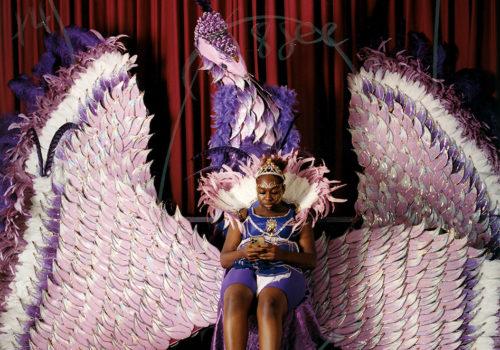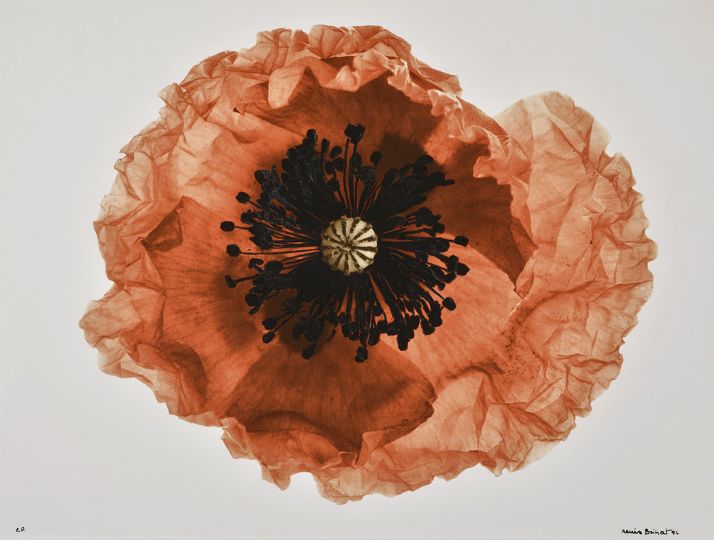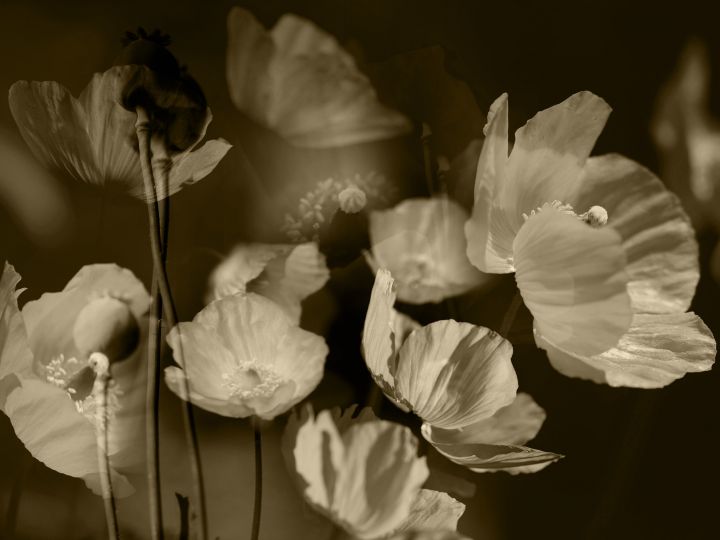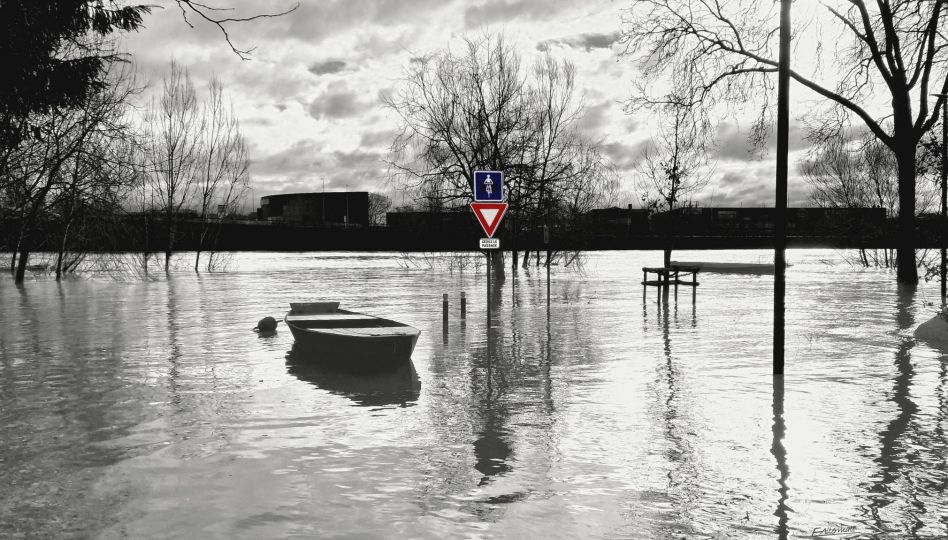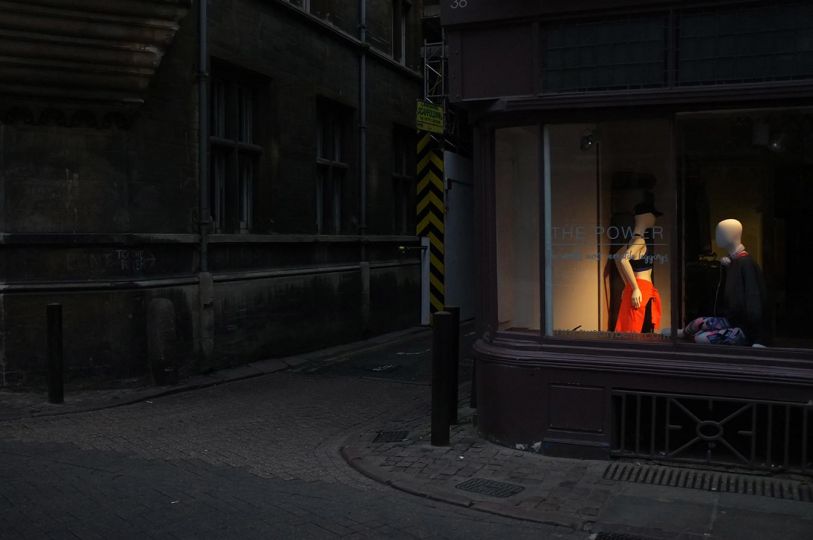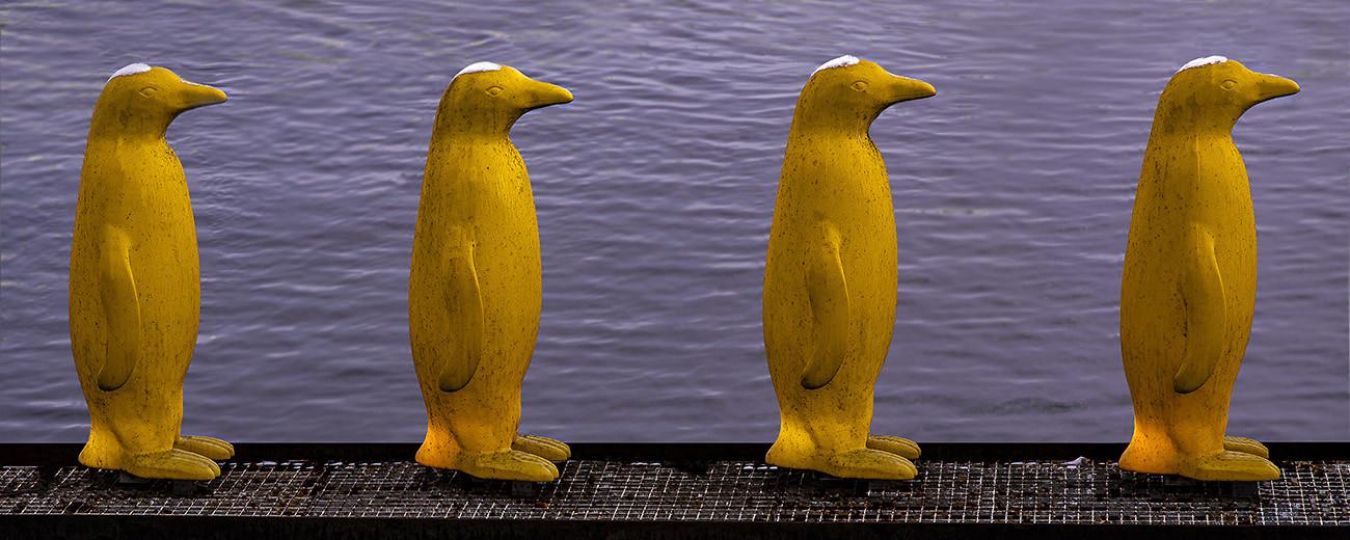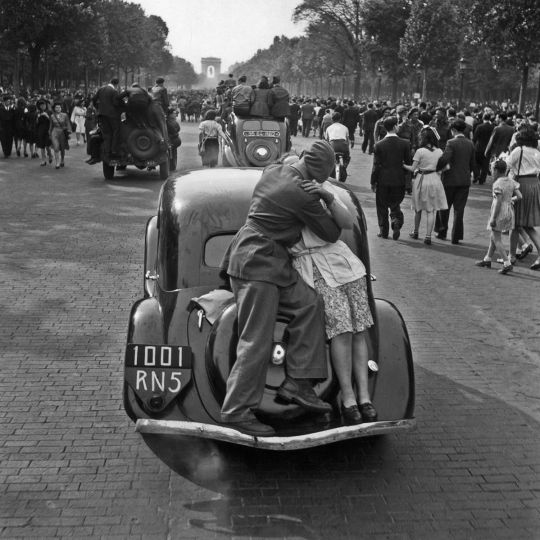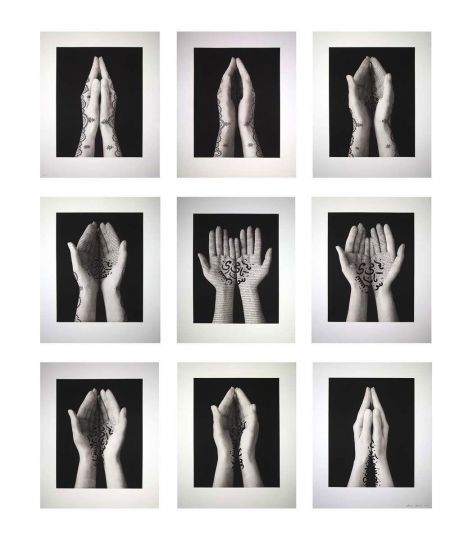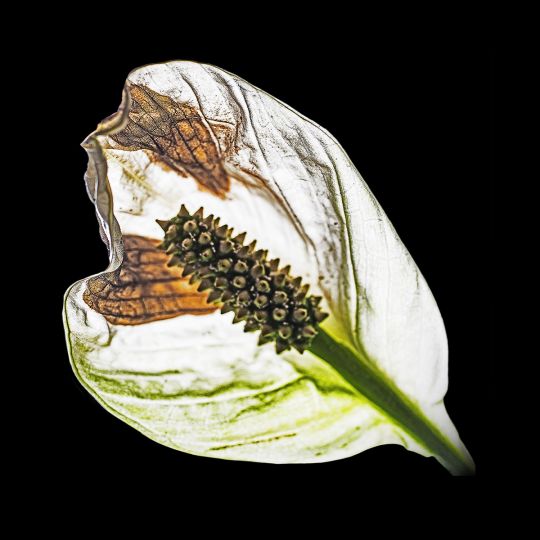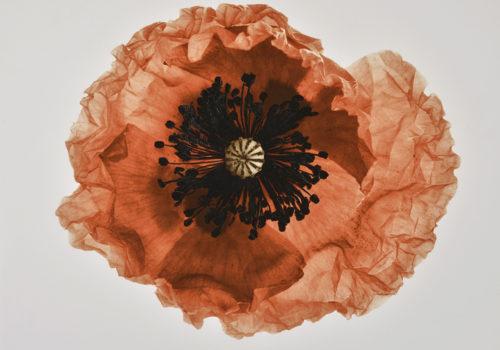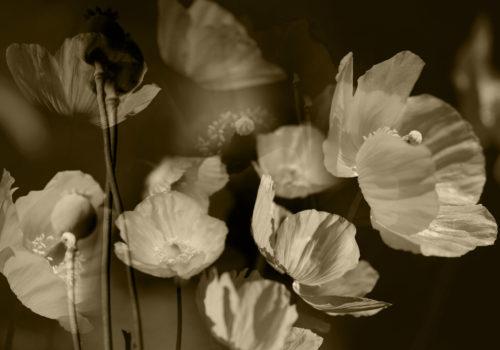Oliver Frank Chanarin travelled with his analogue camera through cultural hinterlands of Britain and there is a deficit of wellness in the salvage he photographs. His partnership with Adam Broomberg had come to an end after two decades of working together on conceptual projects like War Primer 2 and in A Perfect Sentence, his first solo monograph, he finds the terrain of documentary photography difficult to traverse after a long absence: ‘I wasn’t sure how to be a photographer anymore; how to take pictures in this new paradigm; how to approach people in the street, in their homes, in their communities; and what is a reasonable expectation of privacy.’
Chanarin’s anxiety comes to the fore with a collaborative photoshoot and a misunderstanding that arises after he posts a portrait on social media. He is found to have transgressed the gallery’s Safeguarding policies – its declarative statements appear on the book’s first eight pages – his images are embargoed and a planned exhibition and other events in the city are cancelled. The balance between being stabbed in the back and a self-inflicted wound remains uncertain but it may come to mind when he photographs the Casualties Union’s recreations of serious injuries for the emergency services and other clients planning for disasters: one image depicts a man crouched against a wall with a knife protruding from his back.
Chanarin provides some information about the content of his photographs by writing about the diverse people and places he encountered, from military personnel and zookeepers of a sort to factories and a shibari class. The images, not usually thematically grouped and always un-localized, avoid becoming a linear narrative. Part of the appeal of this very stylishly produced book arises from the juxtapositions of pictures, as when a glum-looking drag-queen on a verso page meets on the recto a framed official portrait of young Queen Elizabeth II on a shelf with a teddy bear. The overall sequencing is what creates the sense of an odyssey without a homecoming, through an England both familiar and strange. Developing and printing these photographs himself, Chanarin has found the aesthetically appropriate form for his venture.
The weather of this book is not promising –subjectivity and identity look as parlous as the state of documentary photography itself – the hard rain has already fallen. Forecasting becomes quixotic, reducing the observer to reading the tea leaves of a dispiriting, post-Brexit and post-Corbyn atopia. Agency has been pushed to the margins – to bondage rituals and model railways enthusiasts – and a bleak banality, imbued with a lurid sadness, mark a topography where the traffic lights have stopped at orange. He visits a homeless shelter and introductions are made: ‘each man spoke with openness and clarity about his journey into housing instability, and how this shelter and the people who ran it had saved their lives’. Chanarin is honest enough to question his role in such a situation – is his camera there as a witness, is he supposed to be an interlocutor, a helpful friend? – and he left feeling bereft: ‘Taking photographs of these men wasn’t going to help them. I felt unmoored, like a planet without moons.’
Sean Sheehan
Oliver Frank Chanarin’s A Perfect Sentence is published by Loose Joints.

